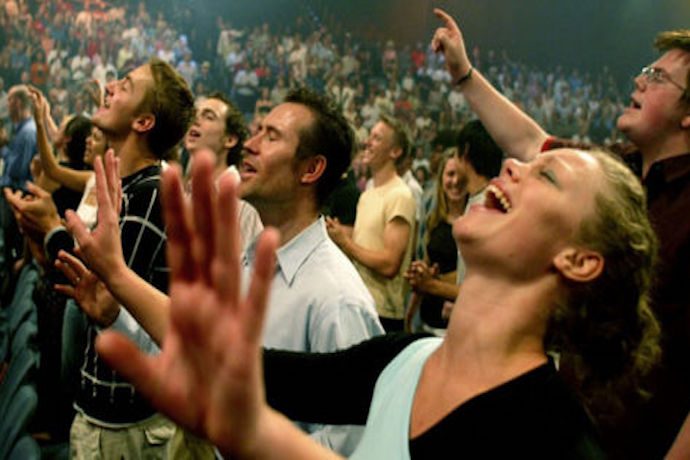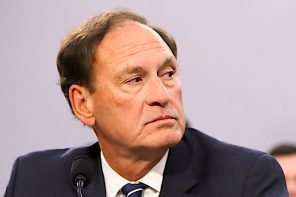Though he lost the popular vote by nearly 3 million ballots, the Electoral College carried Donald Trump across the line with razor thin victories in Wisconsin, Michigan, and Pennsylvania. Nationally, he relied very heavily on support from a base few would have associated with Trump at any other point in his life—Christian conservatives. For decades, this group has advocated the sort of stern public morality that Trump has, for decades, publicly despoiled. And yet, despite his many flagrant sins—indeed, despite his refusal to repent for them—Trump won the support of America’s most self-consciously pious voters. Over the twelve months since, political observers around the world have been asking one perplexed and frustrated question: Why?

Choosing Donald Trump: God, Anger, Hope, and Why Christian Conservatives Supported Him
Stephen Mansfield
Baker Books
October 3, 2017
In his new book, Choosing Donald Trump: God, Anger, Hope, and Why Christian Conservatives Supported Him, Stephen Mansfield seeks to answer that question. By contextualizing the 2016 race, briefly recounting Trump’s religious biography, and exploring the mindset of the “Values Voters” who turned out en masse, Mansfield works to make their choice intelligible. RD’s Eric C. Miller spoke with him about the lessons learned.
Just over a year ago, 81 percent of white, evangelical Christian voters supported a presidential candidate who could be the perfect avatar for everything they claim to oppose. Why?
They did it mainly because they felt traumatized in the wake of the Obama years and terrified by the possibility of a Hillary Clinton presidency. You have to realize that, if you were a religious conservative in America, coming out of the Obama years you felt like the administration had bombarded your faith. There was a strident LGBT agenda, a strident pro-choice agenda, lawsuits against—for instance—the Green family of Hobby Lobby for not wanting to fund abortifacients in their employee insurance, and even small orders of nuns were sued.* In the culture of conservative evangelicalism, there was a feeling that there had been a war declared upon their tradition. And Clinton would be more of the same.
So there was a very strong sense of fear and shared anger that turned people toward Donald Trump. We should remember, though, that he did not have the majority of the evangelical vote in the primaries, but as it became clear that Clinton would be waiting in the general election, I think it became obvious to a lot of religious conservatives that there was only one candidate who was—call it what you will—crass enough, harsh enough, bombastic enough, or strong enough to defeat her, and so they put their hopes in him.
As I say in the book, I think they vastly overdid it. They let their fear and their anger drive them to a virtual religious re-branding of Donald Trump, and I think it will have serious blowback for religious conservatives in America. But that’s what they attempted, and that’s why I think there was such broad acceptance of Trump among religious conservatives.
Your presentation of the white evangelical case against Obama is generous. But as I read this familiar list of complaints—about contraception, same-sex marriage, Planned Parenthood—it still seems to me that they are claiming the “religious freedom” to strip away other people’s freedoms, and that they feel embittered when they can’t. Having presented their case, are you sympathetic to it?
Well, I’m a Christian and a right of center conservative—not extreme right, but right of center—so I do understand some of that case. I do think that the Obama administration was overly strident against certain forms of traditional religion. But I take a different view on some issues. To put it bluntly, I am free of the fear about the future that many of my fellow Christians seem to feel, and I take a more libertarian attitude toward the acceptance of views other than my own in a healthy democracy.
I think the average religious conservative in America is afraid because they feel their America slipping away, that they’ve lost their position—their “privilege” if you want to call it that—and certainly their liberties. They feel like there is a fight for an America that once was and no longer is. Because I am a historian, but also because I think differently about the issues, I don’t share that same sense of paradise lost. I think we are stepping into a new world and a new order, and that evangelicals are going to have to learn to live within it rather than always raging against it.
You seem amenable to the idea that a lot of white evangelicals were so angry about Obama and the last eight years that they were willing to support just about anyone to get the Democrats out of the White House. So, as the saying goes, they “held their noses” and voted Trump. But political scientists have investigated this claim, and found that “Evangelicals who voted for Trump felt the same level of warmth for him as did other Trump voters.” Have they been claiming a reluctance that they didn’t actually feel?
I think there is a capacity for American voters to convince themselves that they are voting for the best of candidates in the worst of worlds. Many of them, when they leave the polls, will say yes, this is someone that I am enthusiastic about. But the speed with which Trump has lost popularity among evangelicals since taking office makes me wonder if they weren’t simply convincing themselves that he was the best option at the time and that, somehow, their vote was a “righteous” vote.
He’s had about a 10-15 percent drop-off in support from the evangelical community since taking office. So while there may be a sort of exaggerated self-reporting around the time when an evangelical casts a vote, there is some indication that there was never really that depth of devotion. I don’t think their support was ever very deep, and it seems to be weakening quickly.
It is well established that party affiliation is a major influencer of voting decisions, and equally well established that about ¾ of white evangelicals have voted Republican in the last several presidential elections. So are we overthinking this? Were they always going to vote for Trump simply because they always vote for the Republican?
I think that you’re making a good point, which is that there is a degree of essentially unreserved support for the most conservative candidate in any given election. But Donald Trump went beyond what a normal conservative, Republican candidate can count on from the religious base. He not only polled a high percentage of practicing evangelicals, but also non-practicing evangelicals.
(Some scholars make the distinction between practicing and non-practicing, meaning those who identify as evangelicals but don’t go to church regularly, and who tend to have higher rates of addiction, divorce, arrest, etc.)
He activated—and I’m from the south so I get to say this—the “Bubba vote,” even the non-religious Bubba vote. So Trump went beyond what John McCain received, what Mitt Romney received, even what George W. Bush received. I think that is attributable, again, to a lot of the anger and fear that these voters were feeling. Between his economic empowerment message and his overt support for religious liberty, I think that played very well within both practicing and non-practicing evangelical cultures.
You touch on race at several points throughout the book, usually as part of a list of Trump sins that white evangelicals were willing to look past. But white evangelicals are a white constituency by definition, and Trump ran a campaign based largely on racial demagoguery. Are white evangelicals more supportive of Trump’s racism than they’re willing to admit?
Well I can’t say that they are supportive of his racism, but they are definitely tolerant of it. This is one of the issues that I raise in the book. He got 81 percent of the vote from white evangelicals, and now evangelicals of color are looking at their white co-religionists and saying, Well I guess it didn’t matter to you that he was making those racist statements. I guess it didn’t matter to you that he has these feelings about Mexicans, Muslims, African Americans, etc. So I don’t know that white evangelicals were supportive of his racism, but it certainly wasn’t a deal-breaker.
I’m a little bit sensitive about this because—and I don’t mind injecting my story into this—that was one of the main reasons why I couldn’t vote for Trump. I have African Americans in my family, I have black nieces and nephews, and I couldn’t look them in the eye having voted for a man who seems to hold them in such disregard. All of that to say that this is all very questionable. I would be careful not to accuse white evangelicals of supporting Trump’s racism, but it’s very clear that they tolerated it and they voted for him anyway and that has created a very serious fault line in the evangelical community between believers of color and those who are white.
On top of everything we already knew about Trump’s views on women, the Access Hollywood tape went public less than a month before the election. At that point, I thought that he was totally done because there was simply no way that evangelical Christians could possibly justify supporting a man who said the things that he said. But they did. So what are we to make of their attitudes concerning infidelity, divorce, harassment, sexual assault, and toward women in general?
That is, in my opinion, a low-water mark for American evangelicalism. People who had stood before television cameras and in their pulpits and absolutely decried sexual excess and misconduct, and who pushed a very strong sexual purity message, were then able to turn around and say publically that, you know, “boys will be boys.” These were revelations about Trump abusing women—grabbing them inappropriately, speaking of them as though they’re meat. That was an extremely disturbing moment when we watched, as you say, these evangelicals making excuses for him. And I am very critical on this point in my book.
Donald Trump is Donald Trump. He’s not hiding who he is and he has never hidden from us who he is. He’s never even claimed to be born again or to be a great spiritual leader. But those around him, those religious right leaders who made excuses for him at that moment, who tried to rebrand him as Lincoln, as Churchill, as Cyrus the Great, Nebuchadnezzer, or whatever else, have not only caused a lot of damage, but I think compromised their entire message.
More disturbing, perhaps, recently the Washington Post has run a couple of articles in which they’ve asked whether there is anything that Trump could do to cause these evangelical leaders to withdraw their support from him, and their answers make clear that their thinking is transactional. “We support him until the last breath because he gives us access that no other President has given us.” They are admitting to the transactional nature of their relationship with him, and I think that is a dramatic step down from the loftier pulpits that they should be maintaining.
You’ve dedicated the book to the Millennial generation, and you told National Public Radio that the young adults you’ve interviewed have been repelled by the “hypocrisy” of Trump supporters in the church. What hopes and expectations do you have for these young people in the years to come?
Well, I like that they are oriented toward social justice, I like that they question what has come before them—I think only good can come from that. I’m sorry that they feel distanced from their churches because, in many cases, their evangelical churches have been too political.
But I’m not sorry that they’re searching, I’m not sorry that they’re raising questions, and I think ultimately this will produce good [things]. I think its good that there are tough conversations happening at dinner tables all around this country, in which Millennials are questioning their Boomer and Xer parents, and saying what in the world were you thinking? I think it’s challenging easy thinking and generational laxity, and I think it will do a lot of good. I’m glad the Millennials are the fly in the ointment, and I think they are striking out in some important directions.
I live inside the Beltway but outside the District, in Alexandria, Virginia. As you know, we just had a gubernatorial election in Virginia, and 70 percent of young voters voted for the Democratic candidate—and against Gillespie, who was the GOP candidate. That is almost twice the number in the previous election. So the young, probably in reaction to Trump and to some of the machinations on the Right, went strongly for the Democrat. I think that is an indication of future trends. It will probably settle down, but I think that the social consciences of the young are raising some important questions. We need to listen to them and I think we will be a better country for it.





